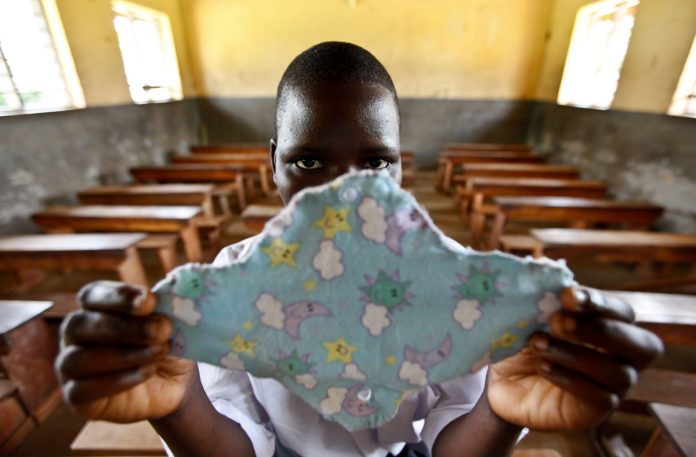|
Getting your Trinity Audio player ready...
|
Some young girls in rural areas in Ghana are reportedly exchanging sex for sanitary pads.
Parents of the girls are not providing them with the sanitary pads to use when menstruating.
The development which has increased absenteeism in schools has also forced many young girls into sexual relationships for financial assistance.
In Ghana’s Eastern Region some of the girls are reportedly being exploited sexually by commercial motorbike riders popularly called “Okada” for paltry sums of money in order to have access to menstrual hygiene products.
These came to light at a Menstrual Hygiene Management and Education Program which saw the free distribution of sanitary pads to the young girls.
15-year-old Ama revealed that her failure of her parents to provide her with the pads has forced her into a sexual relationship which her boyfriend.
“My parents don’t buy it for me, whenever I ask my mother she said she doesn’t have money so my boyfriend helps me to buy” she said.
Another school girl also recounted her struggle for sanitary pads.
“Whenever I menstruate because I don’t have sanitary pads, my mother gives me a piece of rag to use which I don’t feel comfortable so I find my own means to get it.”
Lilian Bruce, a Gender Activist with Plan International Ghana has described the situation as disheartening. She is hopeful misconceptions about menstruation will be changed through the implementation of Rural Water, Sanitation and Hygiene (RWASH) Project.
“It is because parents really don’t care about the menstrual thing on the girls, it turns to take them away from school in terms of absenteeism because she doesn’t get support from parents to manage the blood flow. I will also say that has been the main cause of teenage pregnancy in our communities. They turn to ask money or do other menial jobs.”
The over 2 million Euro Germany Funded RWASH project is providing teenage Schoolgirls with free sanitary pads, management education and girl-friendly hygiene facilities such as changing rooms in their various schools to enhance menstrual hygiene management to curb the “menstruation induced absenteeism”.
Source: Africafeeds.com




![Measuring the beloved Ghanaian sense of humor against actual sense [Opinion]](https://www.dailymailgh.com/wp-content/uploads/2020/03/Ghanaians-100x70.jpg)
